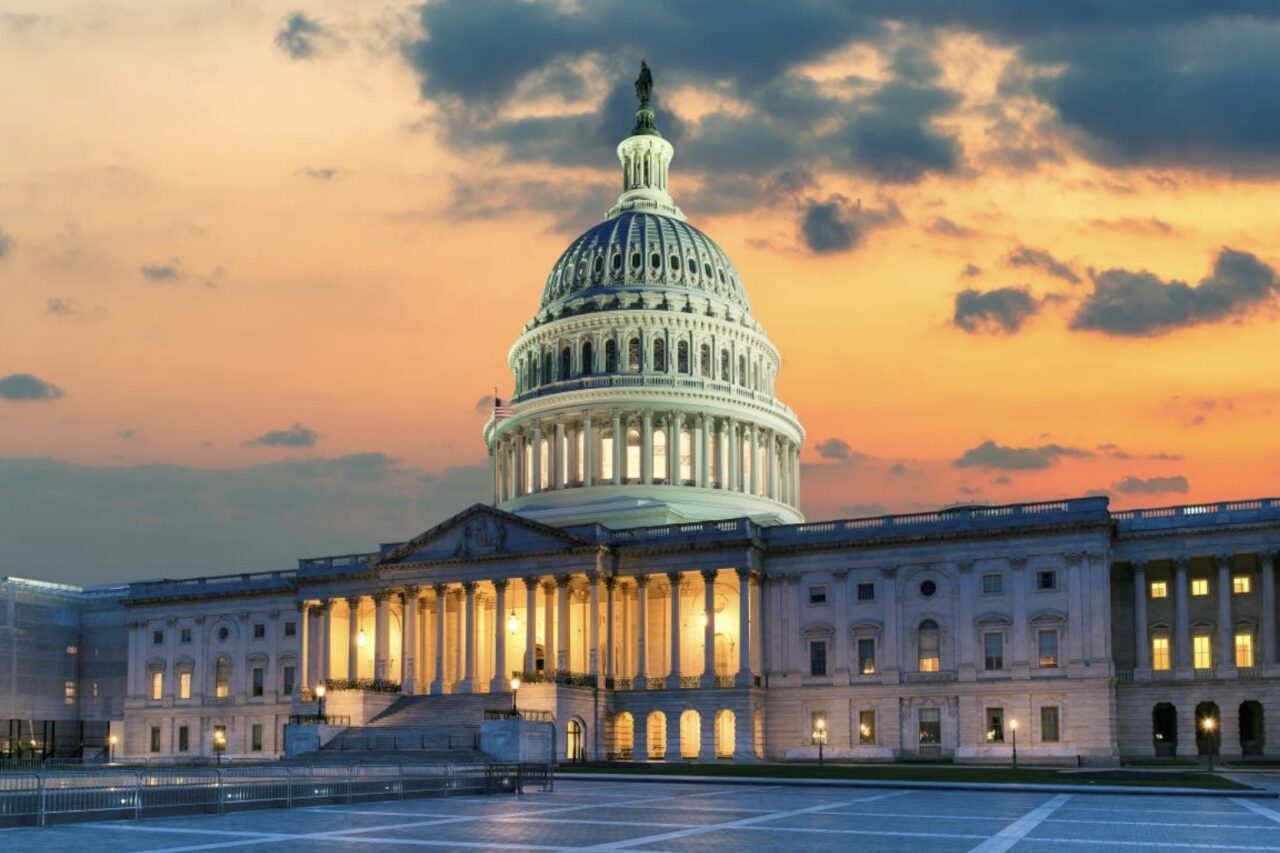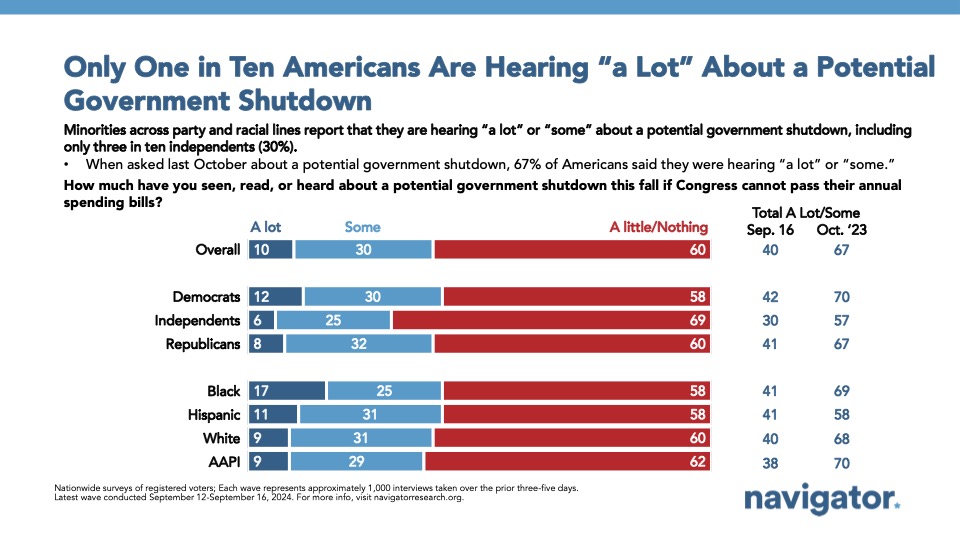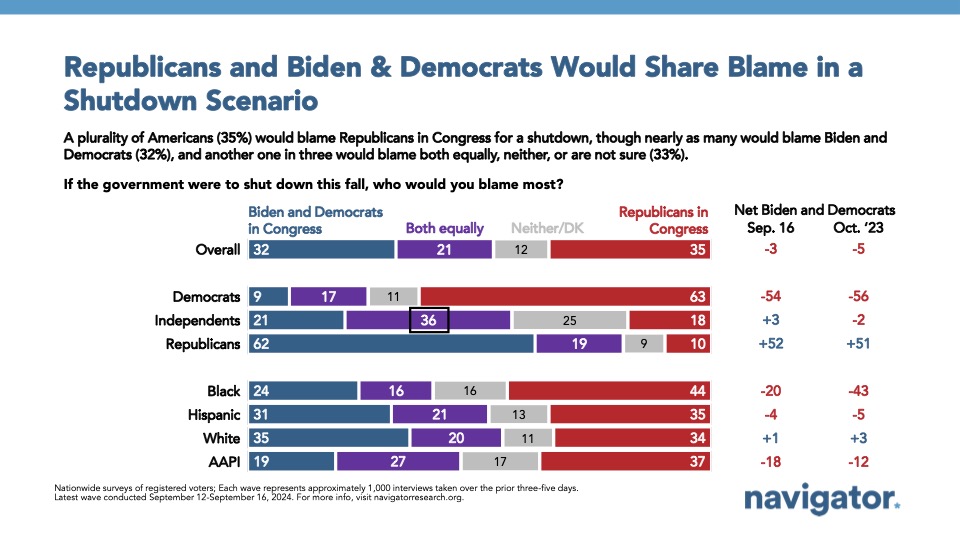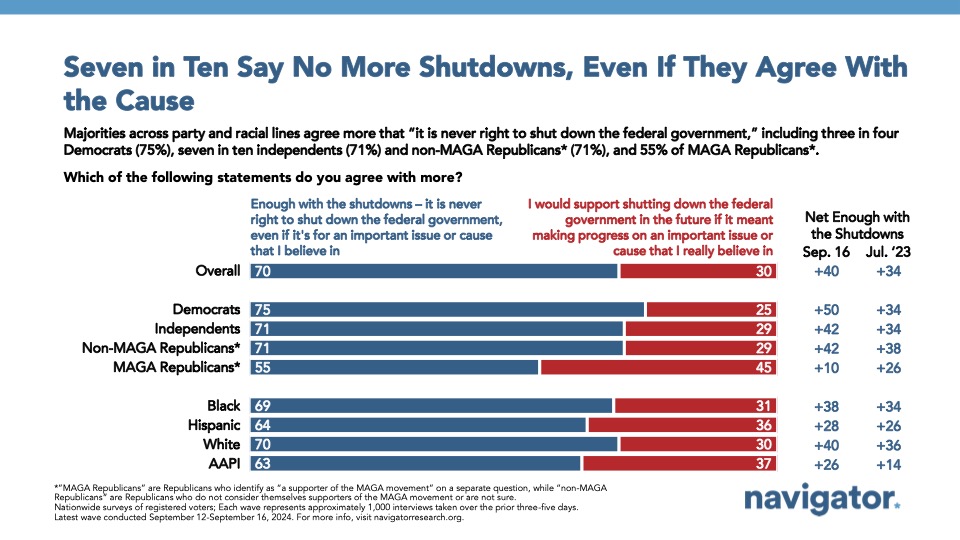Poll: Potential Government Shutdown
This Navigator Research report contains polling data on the latest perceptions of a potential government shutdown this fall, including awareness of a potential shutdown, who Americans would blame if the government were to shut down, and if Americans think shutting down the federal government is ever permissible.
Americans are paying less attention to conversations about a potential shutdown this year than at the same time last year.
Two in five are hearing about a potential government shutdown this fall – a 20-point decrease since last September. 40 percent of Americans have seen, read, or heard “a lot” or “some” about a potential government shutdown this fall if Congress cannot pass their annual spending bills, a 20-point decline since this time last year when Congress was approaching their deadline to pass their annual spending bills (60 percent heard a lot or some). As awareness remains low, Americans are split on who they would blame if the government were to shut down, with 32 percent saying they would blame Biden and Democrats and 35 percent saying they would blame Republicans in Congress.
The way Americans assign blame for a potential government shutdown is highly partisan, as 63 percent of Democrats would blame Republicans in Congress and 62 percent of Republicans would blame Biden and Democrats. Independents are divided, with 21 percent who would blame Biden and Democrats, 18 percent who would blame Republicans in Congress, and 36 percent who would blame both equally.
Americans believe it is never right to shut down the federal government.
Seven in ten Americans believe it is never right for the federal government to shut down – even if it’s for an issue they believe in. 70 percent of Americans agree with the statement: “Enough with the shutdowns – it is never right to shut down the federal government, even if it’s for an important issue or cause that I believe in,” while only 30 percent agree with the statement: “I would support shutting down the federal government in the future if it meant making progress on an important issue or cause that I really believe in.”
The share of Americans who believe it is never okay for the federal government to shut down has stayed consistent throughout Navigator’s tracking, with 67 percent believing it is never okay for the federal government to shutdown in July of 2023, and 68 percent believing the same in February of 2019.
Americans across partisanship agree it is never okay to shut down the federal government, including three in four Democrats (75 percent), seven in ten independents (71 percent), and more than three in five Republicans (63 percent). Republicans who support the MAGA movement are more split (net +10; 55 percent never shut down – 45 percent shut down for a cause), compared to non-MAGA Republicans (net +42; 71 percent never shut down – 29 percent shut down for a cause).



